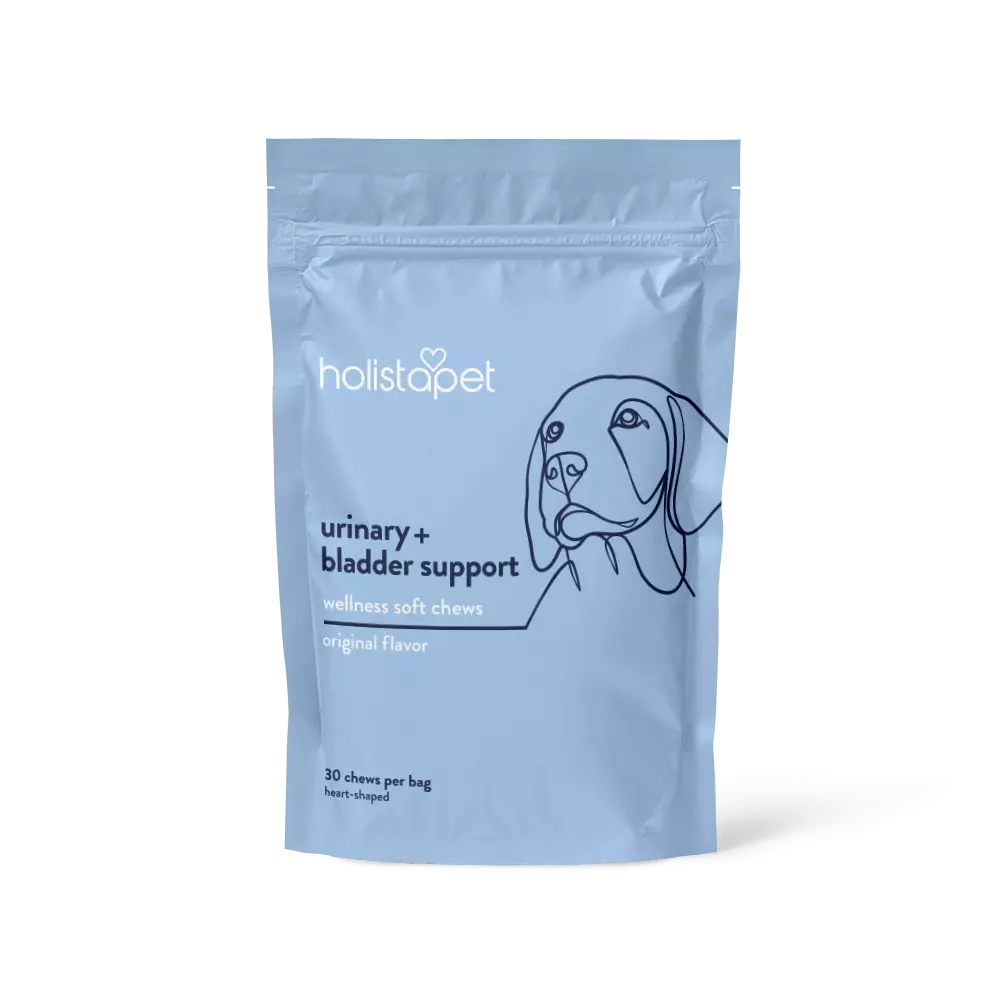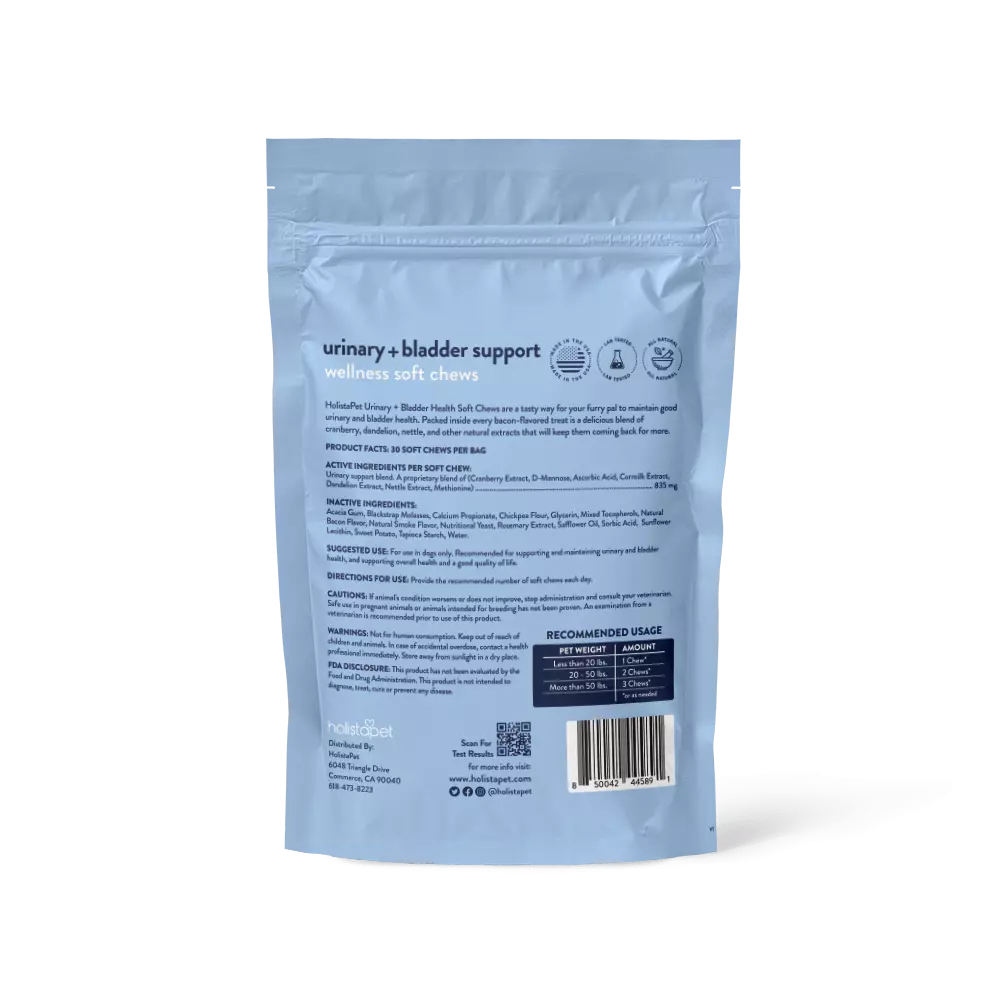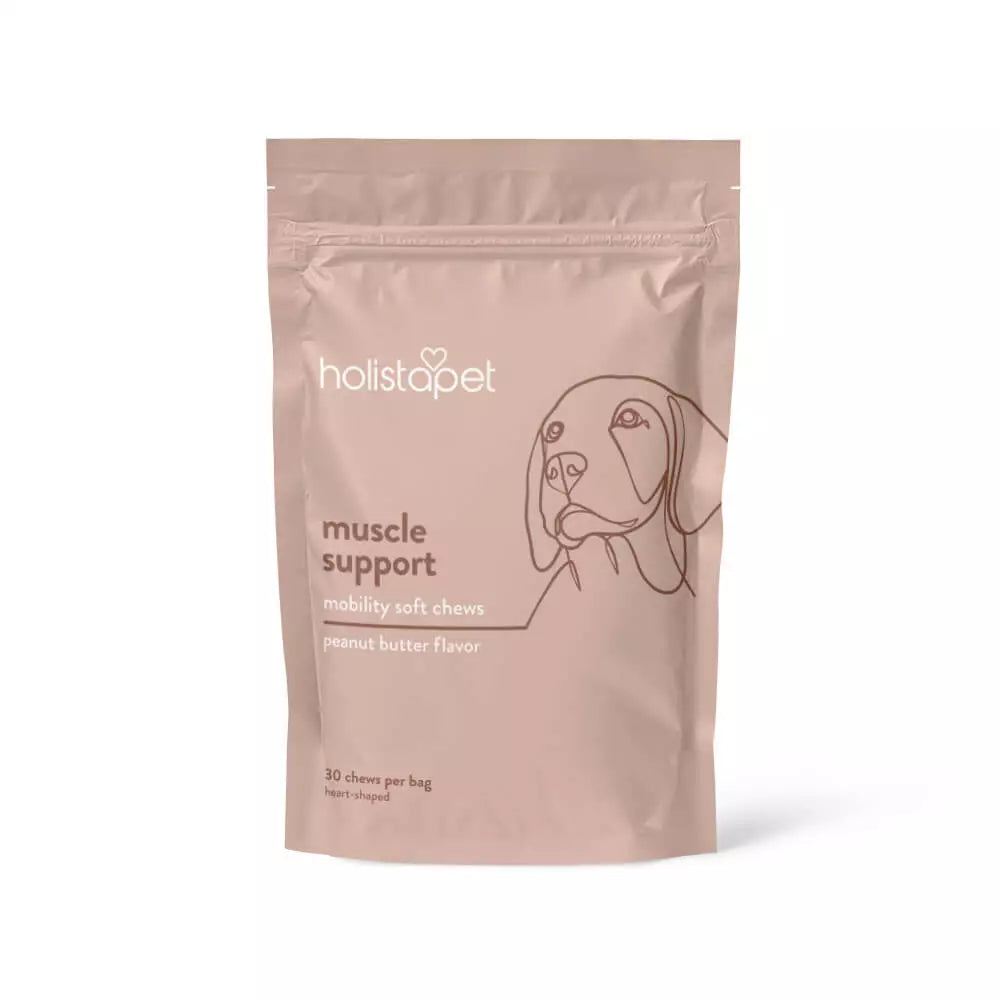Follow us for more!
Welcome to our HolistaPet community! Discover the latest and greatest tips, tricks, and stories from fellow pet lovers like you.
Forget the fairy dust—methionine for dogs is the real magic ingredient for optimal pet health! This essential amino acid plays a key role in many bodily functions, helping our animal companions stay healthy and active all year round.
Ready to explore the power of methionine? In this article, we'll discuss its benefits, supplementation, and some pet parents' burning questions. Let's get started.
What Is Methionine and How Does It Work?
Methionine is an essential amino acid that acts as a foundation for proteins. Protein is key to muscle growth, tissue repair, and enzyme production. Since methionine isn't naturally created in canine bodies, dogs must get it through different foods or supplements.
There are different forms of methionine, such as DL-methionine and L-methionine. DL-methionine is a synthetic form (like DL-methionine tablets) that contains both D and L isomers. L-methionine is a naturally occurring form found in food.
How does methionine work? For one, it supports the synthesis of important molecules. It also helps the liver remove harmful substances from the body. Plus, it can help acidify urinary pH and prevent the formation of struvite stones and urinary stones. We'll explore more of these essential functions in the following sections.
What Are the Health Benefits of Methionine for Dogs?
Thanks to its many health benefits, methionine for dogs has become essential to the canine diet. This amino acid supports various bodily processes:
-
Building Block of Proteins
-
Precursor for Essential Molecules
-
Antioxidant Properties
-
Supports Metabolism
-
Detoxifying Effects
Supports Urinary Health
Methionine can help acidify your dog's urine pH. This acidification helps prevent the formation of struvite crystals and urinary stones. Keeping your dog's urine pH level low helps reduce the risk of urinary obstruction and bladder infections.
Methionine supplements are also often used in veterinary medicine to manage bladder stones. These nutritional supplements can benefit dogs with bladder issues and recurring urinary problems.
Building Block of Proteins
As mentioned, methionine is a fundamental part of proteins. Proteins are essential for muscle growth, tissue repair, and the production of enzymes and hormones. Your dog can develop strong and healthy muscles by ensuring they get enough methionine.
The amino acid methionine helps produce keratin, a key protein in hair and skin. With enough of this protein, your pet can maintain healthy skin and a shiny coat.
Precursor for Essential Molecules
Methionine is a precursor for several essential molecules. It helps synthesize cysteine, which is necessary for glutathione production. Glutathione, a powerful antioxidant, helps protect cells from damage caused by free radicals.
Also, methionine is key in taurine production. Taurine is an amino acid important for canine heart and eye health.
Antioxidant Properties
As a precursor to glutathione, methionine helps protect cells from oxidative stress and damage. This protection helps ensure cell health and prevent age-related diseases.
Antioxidants also support dogs' immune response. With an enhanced ability to fight infections and oxidative stress, your dog can stay resilient against any disease.
Supports Metabolism
As an essential amino acid, methionine is crucial in metabolic processes that convert food into energy. These processes help maintain pets' energy levels, ensuring they have the stamina for daily activities.
Methionine also helps break down fats in the liver, preventing the buildup of fat deposits and promoting liver health. By supporting these metabolic processes, methionine helps canines maintain a healthy weight.
Detoxifying Effects
Regular methionine intake can help your dog's body to stay clean. As mentioned, methionine aids the liver in detoxifying the body. It also helps synthesize glutathione, a powerful antioxidant that can neutralize toxins.
In addition, methionine helps prevent the buildup of harmful substances in urine. The essential amino acid helps reduce the risk of bladder stones and urinary tract infections (UTIs) by promoting urine acidification.
What HolistaPet Supplements Contain Methionine?
HolistaPet offers high-quality pet products with methionine to support your pup's health. You can choose from:
-
Urinary + Bladder Support Chews for Dogs. These bacon-flavored soft chews combine methionine with cranberry, dandelion, nettle, and cornsilk extracts for smooth potty breaks. They taste good and can double as treats during training.
-
Muscle Support Chews for Dogs. This tasty supplement also doubles as a treat, thanks to its yummy peanut butter and banana flavor. It combines methionine with other muscle-building ingredients like potassium chloride, lysine, and taurine.
All HolistaPet products contain natural ingredients. They are also gluten-free, non-GMO, cruelty-free, and third-party lab-tested to ensure quality and safety. Thousands of pet parents have enjoyed our offerings, as evidenced by the many positive reviews on our website. Visit our shop today and see which products can help your dog.
Methionine Supplementation FAQs
Methionine supplementation can raise many questions for dog owners. This section will answer your most pressing questions about methionine for dogs. From administration to dosing and potential side effects, we've got you covered. Let's dive in.
How Do I Administer Methionine to My Dog?
Most methionine supplements come as tablets or chews. You can hide one tablet in a small piece of meat or a pill pocket for easy administration. If you use a chewable form, offer one to your dog like any other treat. Chews are tasty and double as treats, so administration should be easy, too.
Follow the dosage instructions from the manufacturer or your veterinarian. Consistency is key, so give the supplement at the same time each day to maintain stable levels in your dog's body.
What Are the Dosage Guidelines?
Dosage can vary depending on your dog's size, age, and health needs. Generally, you should follow the manufacturer's or your veterinarian's instructions. However, a typical dose for most dogs might range from 5 to 10 mg per pound of body weight, given daily.
Observe your dog's response and adjust the dose if necessary. Start with the lower end of the recommended dose and gradually increase if needed. Always consult your veterinarian before making any changes to the dose to ensure safety and effectiveness.
Are There Any Side Effects?
While methionine is generally well-tolerated by dogs, some may experience side effects. Common side effects include queasiness or diarrhea, especially if the dose is too high. In rare cases, pets may have allergic reactions like skin irritation or rashes.
If your dog shows any signs of an allergic reaction, discontinue use and call your vet immediately. Ensuring the correct dosage and monitoring your pet's response can help minimize the risk of side effects.
Is There a Risk of Overdose?
Yes, there is a risk of overdose if a dog takes too much methionine. Overdosing can lead to metabolic acidosis, a condition where the body's pH becomes too acidic. Overdose symptoms may include vomiting, excessive drooling, lethargy, and disorientation.
To prevent overdose, always follow dosage guidelines. If you suspect your dog has ingested too much methionine, consult your vet immediately. Regular monitoring and careful administration are key to safely adding methionine to your dog's diet.
Are There Possible Drug Interactions?
Yes, methionine can interact with some medications. Some antibiotics and other medications used to treat urinary issues may have interactions with methionine. Combining these drugs may alter their effectiveness or increase the risk of side effects.
If your dog is currently taking any medication, talk to your veterinarian first. Your vet can guide you through managing potential interactions and adjusting dosages.
Other Considerations for Methionine Use in Dogs
Dogs with pre-existing liver disease, kidney issues, or pancreatic disease may require special attention. Why? Because methionine can impact these organs. Always consult your veterinarian before introducing a new supplement. Doing so will ensure it won't worsen any existing conditions.
Also, consider your dog's diet and any other supplements they take. Methionine should complement their nutrition plan without causing imbalances.
How Long Does It Take for Methionine To Work in Dogs?
The time it takes for methionine to work can vary per dog. Generally, you may notice improvements in urinary health within a few days to a week of regular supplementation. It may take longer for the full benefits to show for issues like urinary tract stones or bladder infections.
The effects might be more gradual for other benefits, such as supporting metabolism or improving antioxidant levels. It could take a few weeks to see significant changes.
The Bottom Line - Methionine for Dogs
A happier and healthier life awaits your dog with methionine. Don't let your pup miss out on all the amazing benefits of this essential amino acid. Visit our shop and check out our helpful pet wellness products containing this game-changing ingredient. Start supporting your pup's health naturally today!







![Probiotics For Dogs [Soft Chews] - HolistaPet](http://www.holistapet.com/cdn/shop/files/Probiotic-Infographic-1_472d7a29-e30c-435a-9638-1365d8c3a9f9.jpg?v=1725384841&width=104)






















